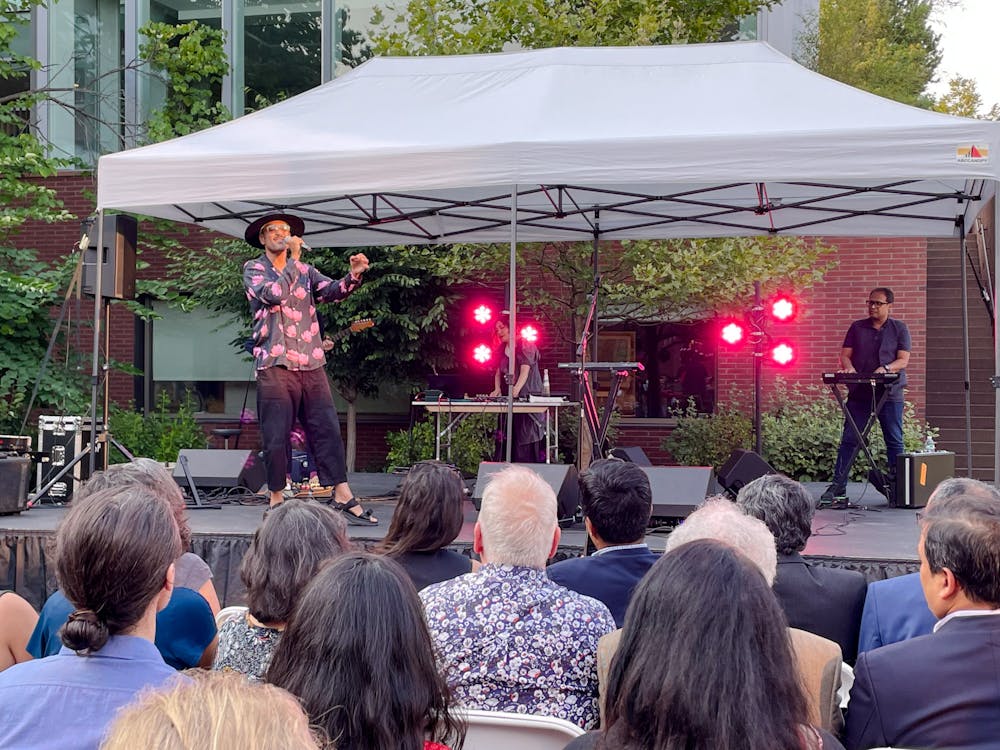On Friday, Ali Sethi — a Pakistani singer, songwriter and author — performed at the inauguration of the Saxena Center for Contemporary South Asia, a new center at the Watson Institute for International and Public Affairs. Sethi shared the stage with musicians Shayna Esther Dunkelman and Grey McMurray for an audience of Brown community members.
Sethi’s work combines live performance with historical criticism and narrative, according to the event description. In February 2022, his song “Pasoori” became a viral hit on TikTok, accumulating more than 149 million streams on Spotify to date.
Sethi’s performance accompanied a series of panel discussions on Sept. 9 and 10 featuring a diverse range of scholars from “nearly every nation” in South Asia, said Stephanie Abbott-Pandey, program manager of the center.
Professor of International Studies and the Social Sciences Ashutosh Varshney, the center’s director, commented on the importance of including “practitioners of art forms” like Sethi in addition to academics. “It’s very hard to have good theories of culture … and forms of cultural expression without full illustrations of what those forms are,” he said.
The center’s mission statement emphasizes its “interdisciplinary” and “culturally grounded” approach to “research, teaching and public engagement on key issues of modern South Asia.”
For 75 years, India and Pakistan “have had far too many hostilities and differences,” but before the partition of India in 1947, “they were part of a unified culture,” Varshney said.
Varshney explained that he invited Sethi because he “transcends hostilities and brings a singular artistic view of culture and history to bear upon his art.” On Friday, Varshney introduced Sethi by reading an excerpt from an article Sethi wrote for The Guardian.
“Hopes for a survivable present and viable future depend a great deal on how we understand our inheritance,” Varshney quoted from Sethi’s article.
“I hope the audience can see what an awesome talent he is,” Varshney said. “The audience will encounter a rising star in world music.”
Sethi performed a wide range of music inspired by the Punjabi disco he grew up with as well as the ghazal — a form of love poetry that comes to South Asia from the Arabian Peninsula, usually expressing the pain of longing and loss, Sethi said during his performance.
One never knows who the ghazal is addressed to, he said. It could be to a person, a country, a feeling or an era.





